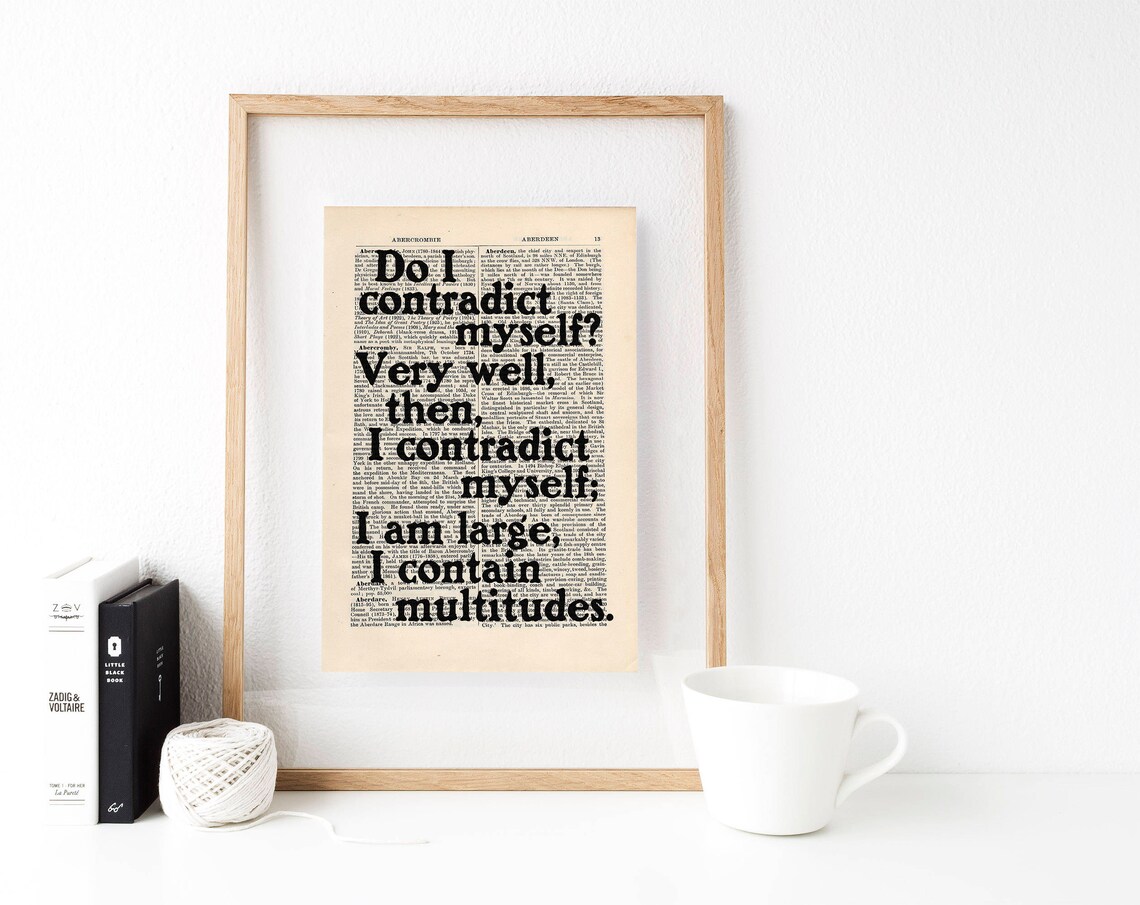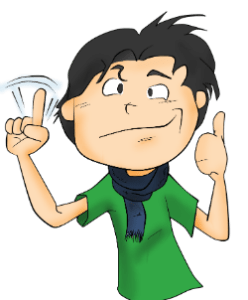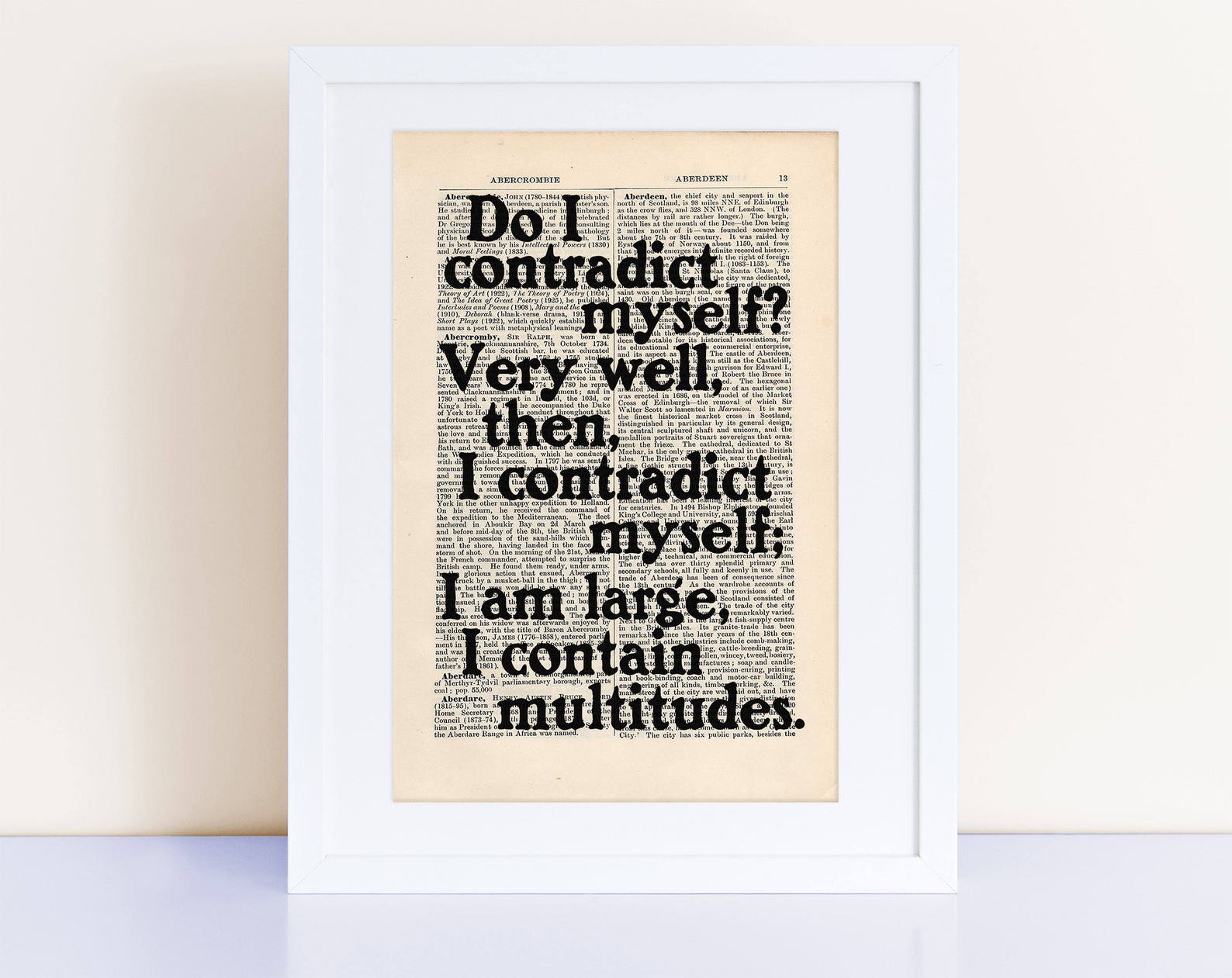

Thinking back to Whitman’s quote, his statement on one contradicting him or herself also refers to how one should be flexible to embrace changing meanings of their art, which I thought was interesting. I found that while writing “미안해/I’m sorry” that its explorations of alienation from one’s birth culture, language or family aim to explore bigger themes such as the intersectionality of language.

Because in that complexity lies your authenticity (and that my friends is the key to distinguishing yourself and your art from everyone else). However, I cannot lie and say I handle this dissonance as stoically as you because I usually reallocate all of my time and energy reserves to ease any contradiction. Let one contradiction open the door to the next, as you discover just how beautifully complex you, and your creations, are. He does not seem to be rooted in reservations about contradicting himself, rather simply accepting the fact that people will be flexible beings whose views change over time. Very well, then I contradict myself, it instantly reminded me of a pretty constant internal dialogue.

The very tone of the Whitman quote is almost nonchalant, unwieldy, and non-academic for such an accomplished poet. Our views might change from one moment to the next, and as we write a poem, we might discover that its original meaning, intent and narrative might not fit the poem we are attempting to forge. What I do remember, is thinking that people are inherently flexible beings. I’ll admit, I don’t know the context of Whitman’s quote nor do I remember the specifics of Nate Pritts’ lecture that led to this quote, because it simply says that quote in my notes. “Do I contradict myself? Very well, I contradict myself”


 0 kommentar(er)
0 kommentar(er)
